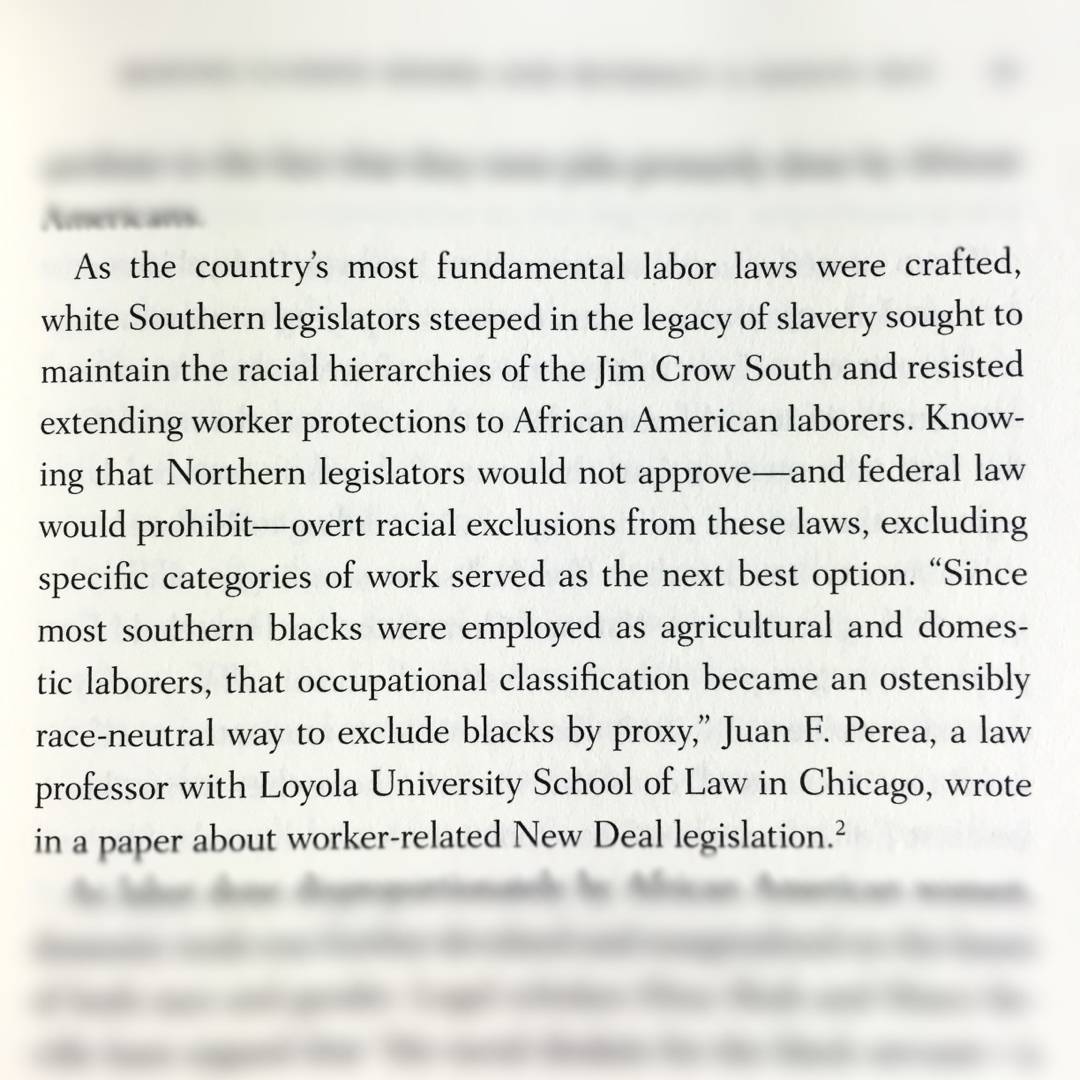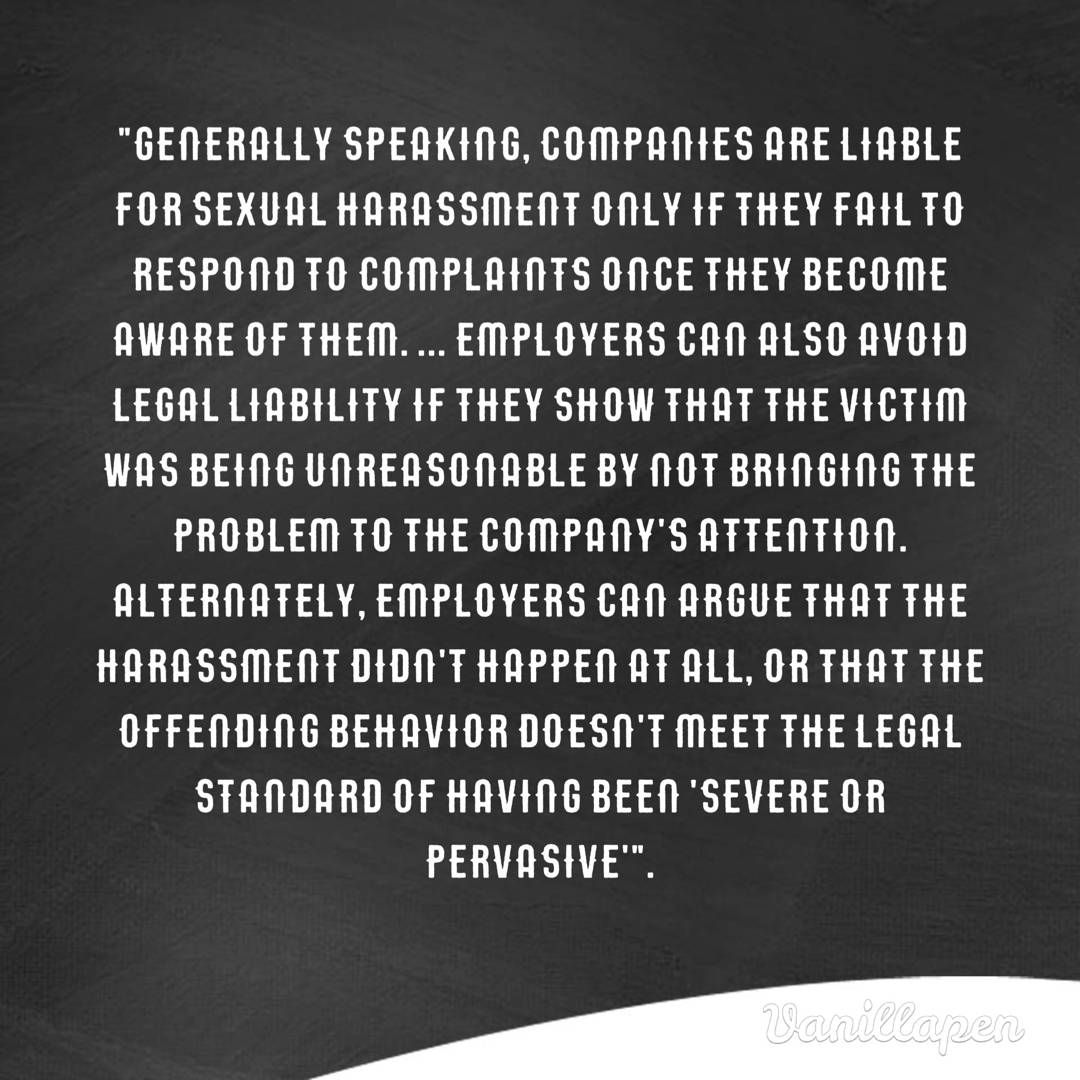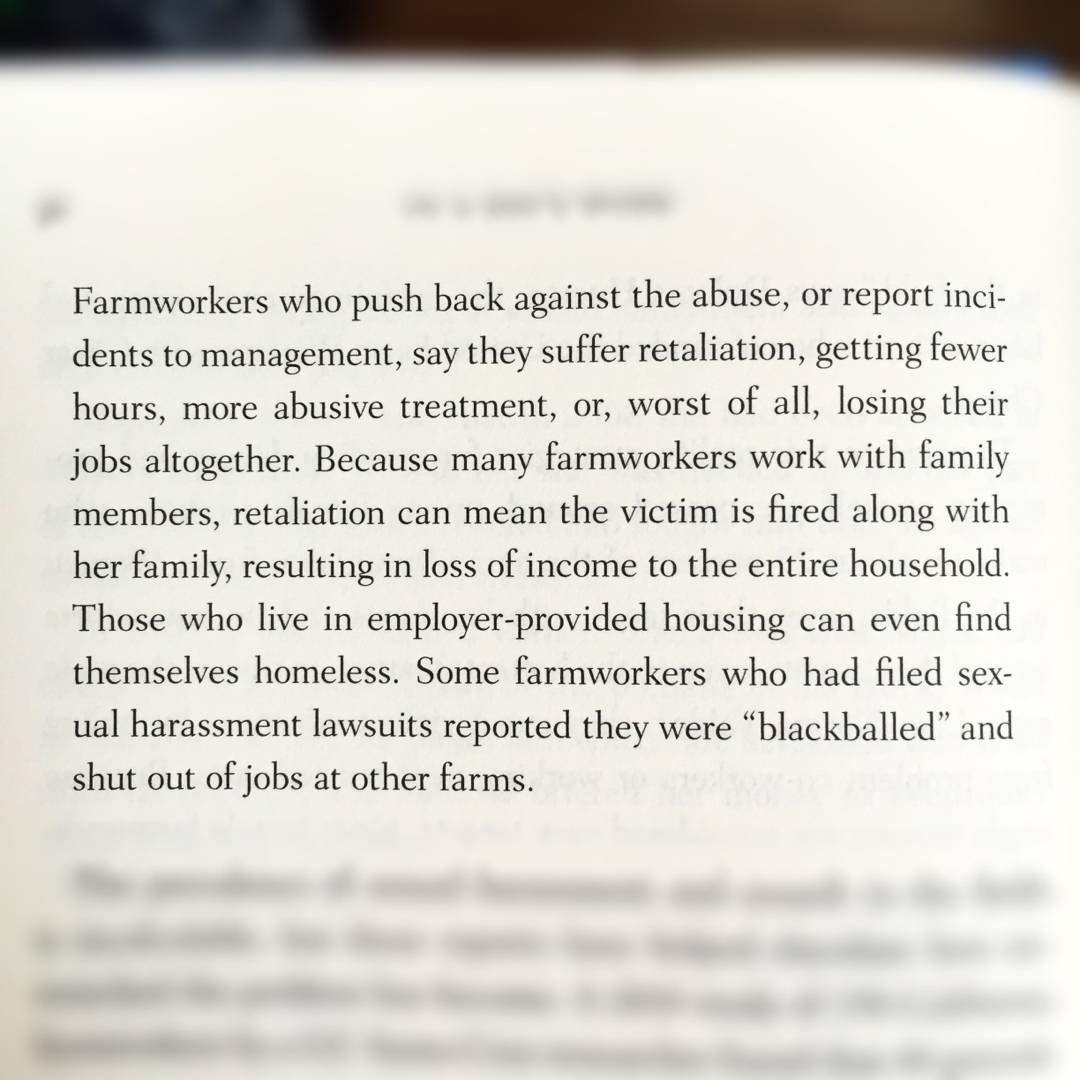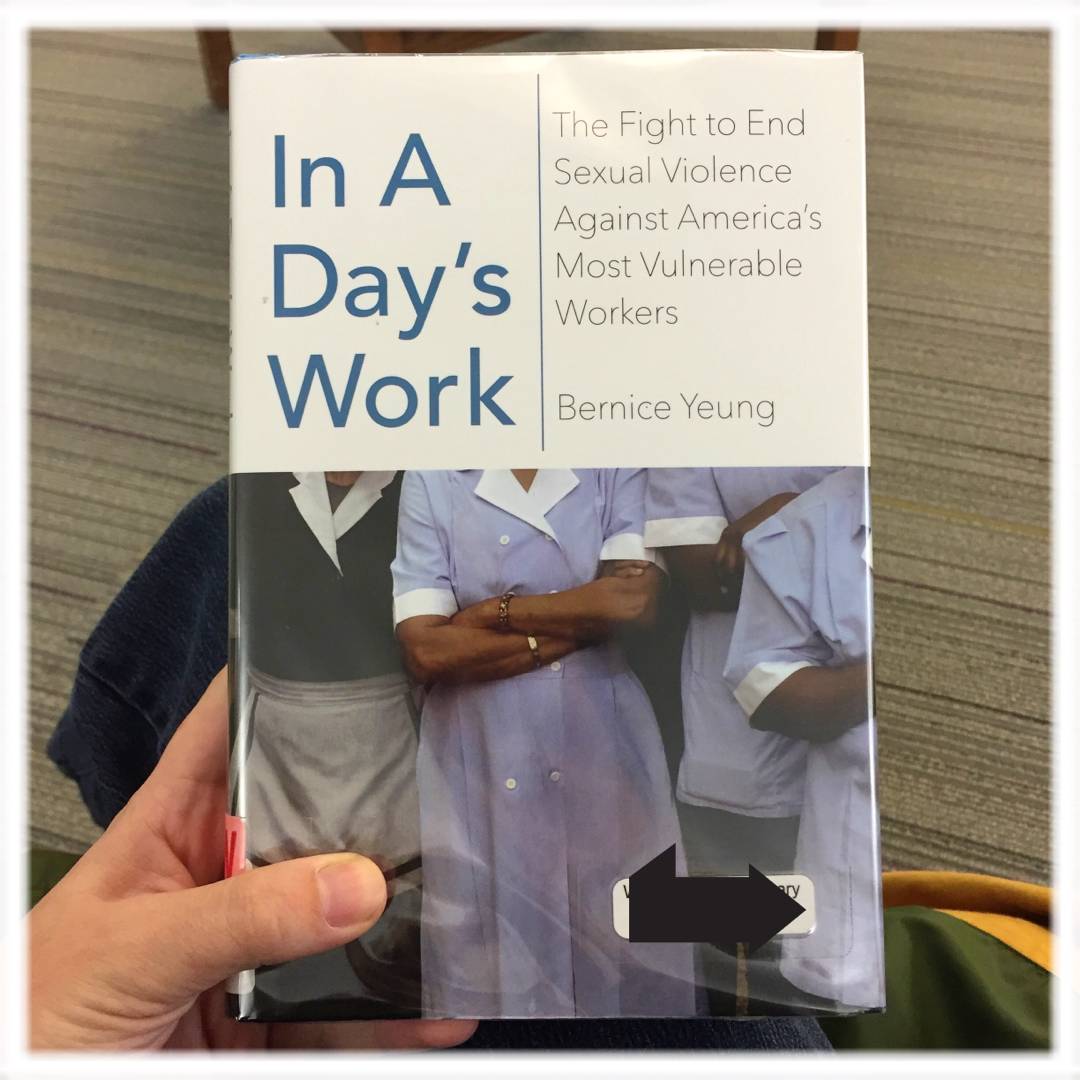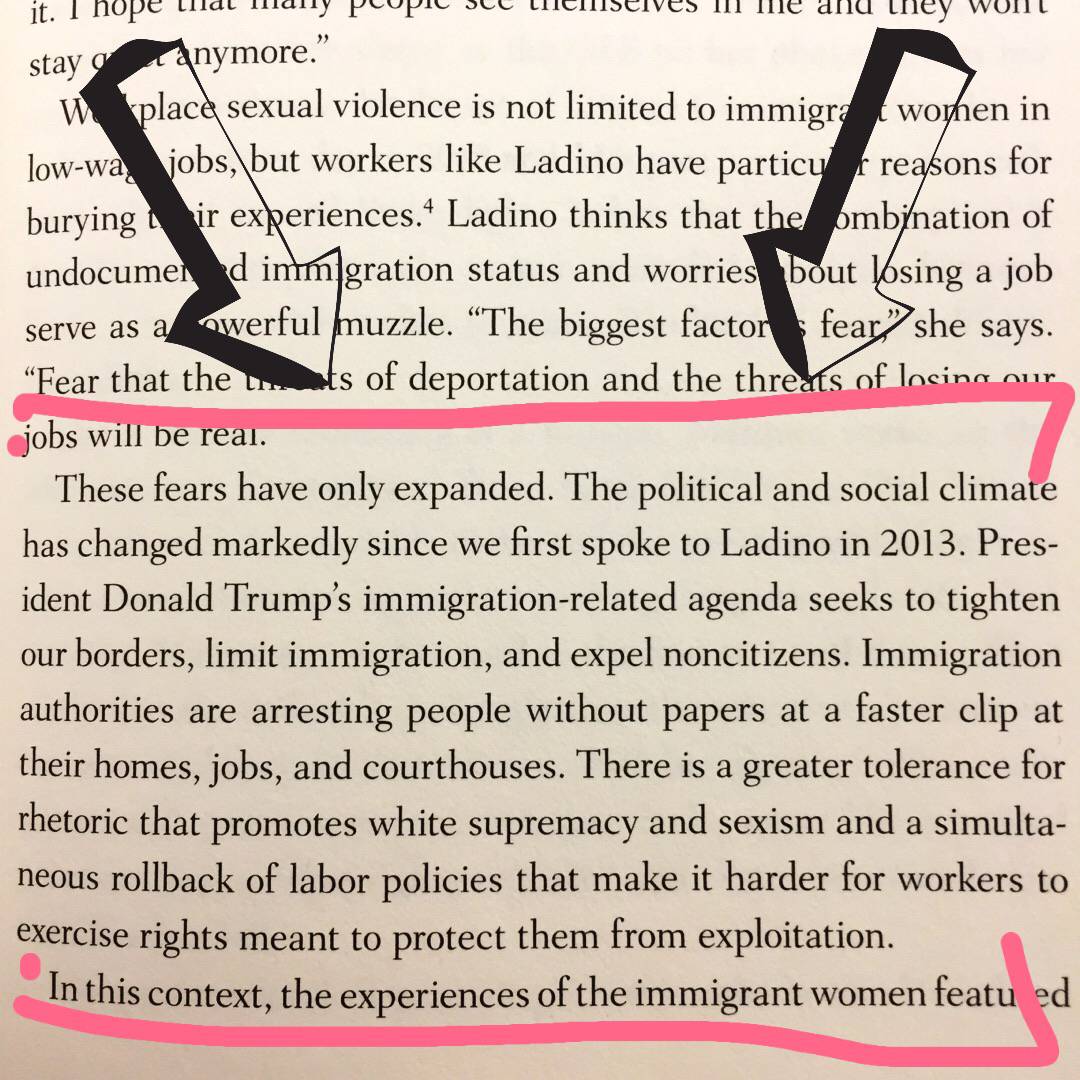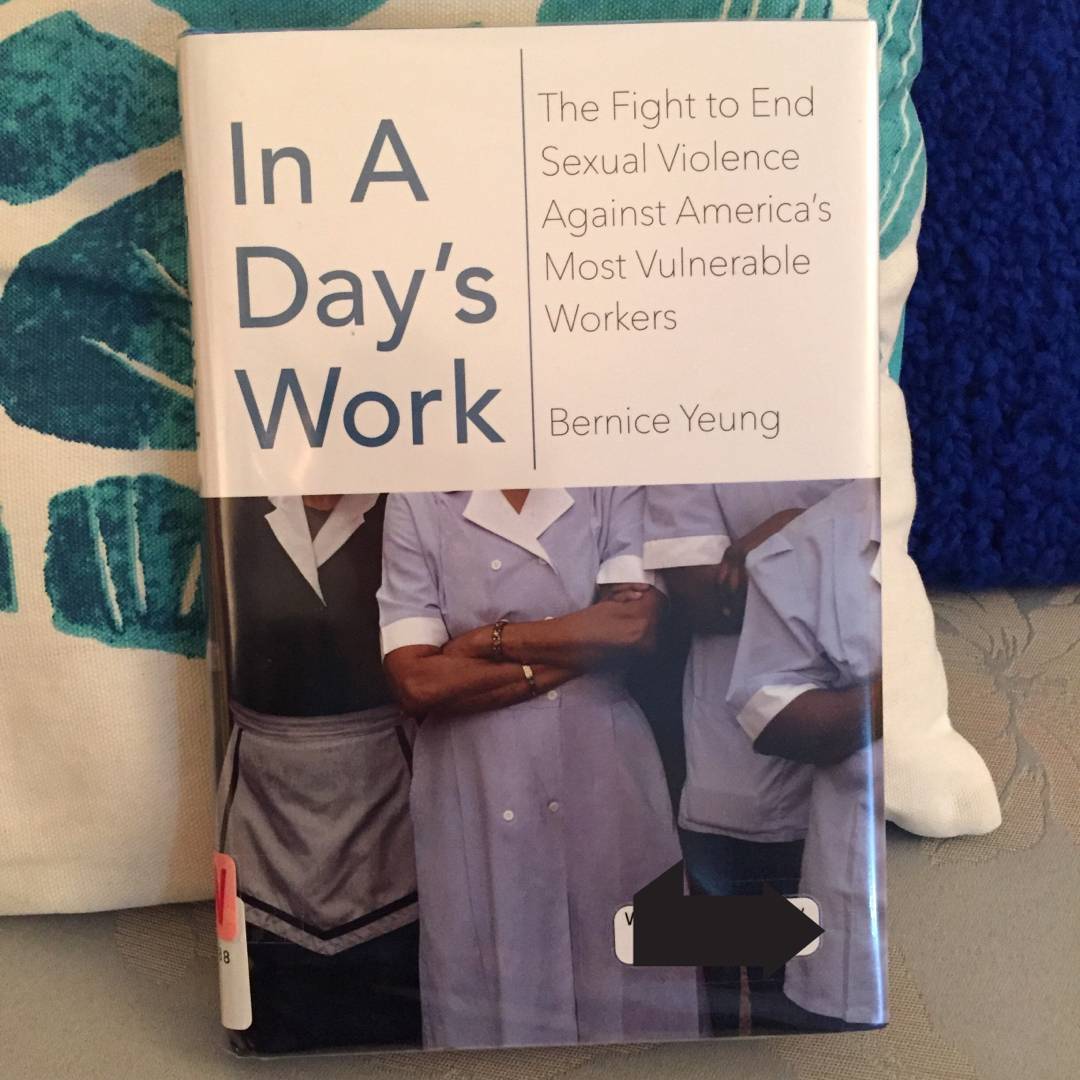
Amazing. Amazing, amazing, amazing. This is the culmination of years of investigative journalism done during 2012-15. It documents the widespread problem of sexual abuse experienced by immigrant laborers. It covers the janitorial, agricultural, and domestic care industries, and discusses the roles federal govt orgs, states, nonprofits, and unions play in tackling rampant sexual abuse & exploitation of female immigrant workers. V heavy read.














